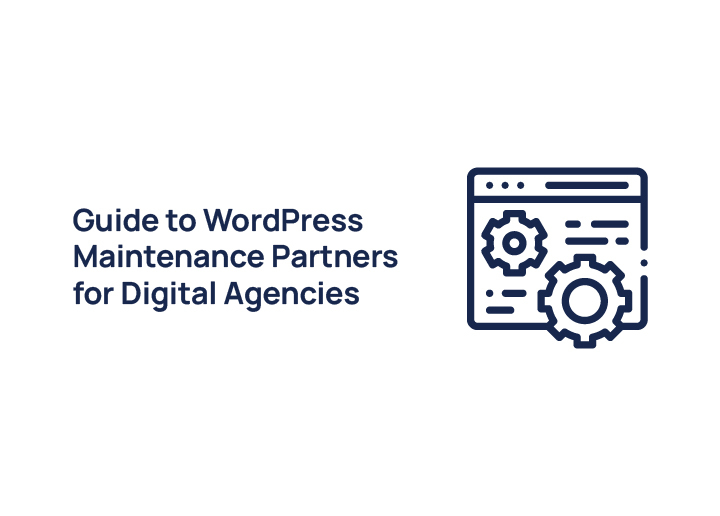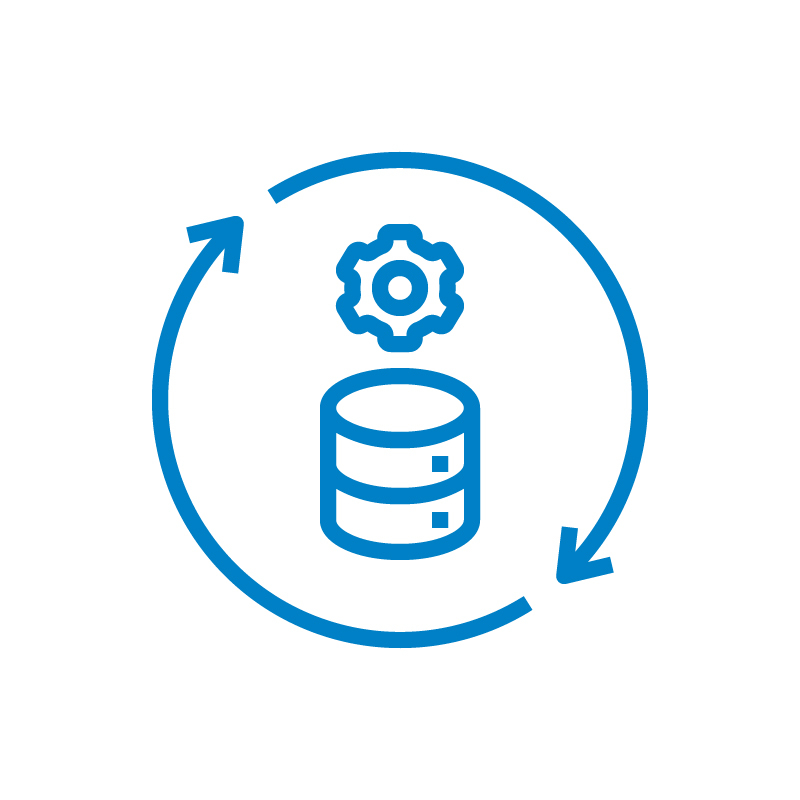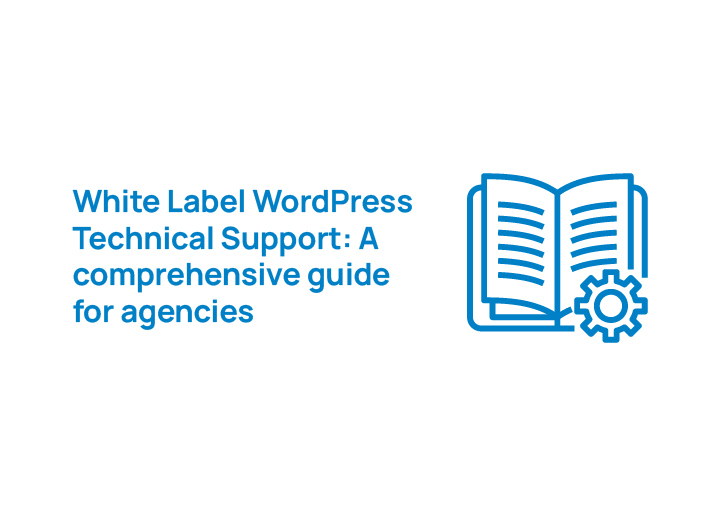Are you wondering if it’s time for your agency to bring on board a WordPress maintenance partner? If you’re a web design or development agency, the answer is likely yes. While many agencies focus on designing, developing, and marketing client websites, the ongoing maintenance of these sites is just as critical.
Partnering with a dedicated WordPress maintenance provider can be transformative. It allows agencies to ensure that client sites are secure, up-to-date, and optimized for performance without stretching internal resources.
In this article, we’ll explore why having a WordPress maintenance partner can strengthen a digital agency’s offerings, streamline operations, and ultimately boost client satisfaction and loyalty.
What is a White Label WordPress Maintenance Partner?
A white-label WordPress maintenance partner is a WordPress agency that allows another WordPress agency to sell its services and products under the second agency’s name and brand.

In this arrangement, the service provider handles some or all aspects of production, development, and sometimes even ongoing support. At the same time, the reseller rebrands the white label product with its own brand name, logo, and other branding elements before selling it to clients.
There are different types of white label partnerships, each with unique characteristics and benefits. In a full-service white label model, the provider handles everything from production to customer support, allowing the reseller to focus solely on marketing and sales.
In a partial white label model, the provider may only handle production, leaving customer support and other services to the reseller. Understanding these types helps businesses make strategic decisions and effectively engage in white label partnerships.
For example, in a white label partnership for WordPress services, the white label provider might design, develop, and maintain websites, which the reseller then rebrands and sells as part of its own brand’s service portfolio. This allows the reseller to offer high-quality solutions without having to invest in developing the infrastructure or expertise required to create the product or service from scratch.
Read More: From Design to Deployment: Outsourcing the Entire WordPress Project
Scale Your Agency with Dedicated WordPress Maintenance Experts
Get expert WordPress services with full website management, custom development, and reliable support tailored to your business needs.
White label partnerships are common across various industries, such as:
- Software Development: Businesses needing custom software can partner with white label agencies or development firms that create rebrandable solutions, making it easy for the reseller to add software services to their offerings.
- Digital Marketing Agencies: Many agencies use white label partnerships to offer additional digital services, like SEO, social media management, and web development, by partnering with third-party white label partners who perform the work behind the scenes.
In essence, a white label partnership allows the service provider to focus on creating quality products, while the reseller takes on the role of marketing, selling, and maintaining customer relationships.
For both companies, this arrangement is mutually beneficial: the service provider can scale operations without needing a large marketing or sales force, and the reseller gains access to new product offerings that expand its brand’s reach and appeal.
This model is particularly valuable for companies looking to diversify their service offerings quickly and efficiently. By entering a white label partnership, companies can avoid the overhead, risk, and resource strain of developing new services in-house.
Instead, they can leverage the expertise and resources of specialized white label service providers, allowing them to meet client demands, increase revenue generated, and grow their market presence.
Read More: Why More Businesses are Opting for Unlimited WordPress Support
Benefits of Partnering with a White Label WordPress Maintenance Provider
Choosing the right WordPress maintenance partner can be transformative for your agency, offering numerous strategic advantages that help drive growth, streamline operations, and enhance customer satisfaction.

Successful white label partnerships are a strategic approach for businesses to broaden their product and service offerings, providing access to new markets, enhanced revenue streams, and tailored solutions that meet specific client needs.
Here are some of the primary benefits of finding a white label WordPress maintenance partner:
Accelerated Growth Potential
Partnering with a white label provider allows your agency to broaden its service offerings quickly without the time, costs, and complexities involved in building new capabilities in-house.
By leveraging ready-made, high-quality solutions, your agency can increase revenue growth by offering a more extensive range of solutions, attracting clients who seek an all-in-one provider.
Reduced Overhead Costs
Expanding in-house development capabilities typically involves hiring specialized staff, investing in training, and managing additional resources.
A white label WordPress maintenance partner will help you avoid these expenses by allowing your agency to resell expertly crafted white label services without taking on extra overhead.
This model is particularly beneficial for smaller marketing agencies or those with limited internal resources, as it allows them to compete with larger companies without significantly increasing costs.
Minimized Business Risks
Developing new products or services independently requires significant investment and entails considerable risk. White label partnerships mitigate this risk by entrusting production and delivery to a partner with expertise in the field.
This enables your agency to enter new markets or offer new customers services with the confidence that the end product is backed by an experienced white label provider.
Access to Industry Experts
White label partners specialize in their fields, offering access to a wealth of knowledge and experience that may be difficult or costly to cultivate in-house.
By partnering with these experts, your agency can deliver high-quality solutions that meet industry standards and satisfy client needs, even in specialized areas like digital marketing, WordPress development, or SEO.
This access to expertise also enhances your agency’s reputation, as clients receive professional-level services backed by skilled professionals.
Appealing to a Broader Audience
Expanding your agency’s offerings through a white label partnership allows you to reach a wider target audience, as you can meet the varied needs of different client segments. Offering comprehensive solutions strengthens customer relationships and positions your agency as a versatile and full-service provider.
Leveraging the expertise of white label partners broadens the agency’s service portfolio and helps increase revenue and market reach.
As a result, agencies can position themselves as versatile providers capable of meeting diverse client needs, driving sustained growth and success, while cutting costs and minimizing risks.
Discover: The Role of Unlimited WordPress Support in Resolving Critical Site Errors
Choosing the Right WordPress Maintenance Partner
Selecting the right white label provider is critical to your agency’s success and brand reputation. A well-matched partner enhances your agency’s offerings, upholds your standards, and contributes to your growth. Here are some of the most important factors to consider when choosing a white label provider:

Clear and Open Communication
A successful partnership begins with clear communication. Look for a white label provider that maintains open lines of communication throughout the collaboration, as this transparency is crucial for managing customer expectations, addressing any challenges promptly, and ensuring smooth project execution.
Expert-Level Execution and Proven Track Record
Choose a partner with a proven track record of delivering high-quality results in your industry. Their expertise should align with the specific services you want to offer, whether it’s web development, SEO, or digital marketing services.
Commitment to Quality and Consistency
Quality consistency is paramount when outsourcing work. Assess the potential white label partner’s quality assurance processes, from project management to testing protocols.
A reliable partner should have a structured approach to ensuring consistent standards across all deliverables, contributing to customer satisfaction.
Understanding the Distinction Between WordPress Maintenance and Support Services
Agencies often confuse WordPress maintenance services with support services. While both keep a WordPress website running smoothly, they serve different purposes. Understanding the distinction helps agencies offer clear expectations and reliable service to clients.
WordPress Maintenance Services
Maintenance focuses on proactive measures. These include updating WordPress core files, plugins, and themes. It also covers regular WordPress backups, security checks, malware removal, and performance optimization. Maintenance services ensure a site is secure, fast, and fully functional. Professional WordPress maintenance services also monitor uptime, fix broken links, and implement core updates.
WordPress Support Services
Support is reactive. It helps clients resolve unexpected issues, such as slow websites, security breaches, or plugin conflicts. WordPress support services provide technical support, emergency support, and troubleshooting. Expert WordPress support ensures that a website’s performance is restored quickly, minimizing downtime.
Why the Distinction Matters
Separating maintenance from support allows agencies to build effective WordPress management services. Maintenance plans can focus on proactive care, while support services cover immediate problem-solving.
This approach helps agencies manage multiple sites efficiently, providing reliable service and professional WordPress expertise to clients. Outsourcing WordPress maintenance and support can also reduce overhead for agencies without an in-house team.
By clearly defining both, agencies can create comprehensive WordPress maintenance packages, improve client satisfaction, and consistently maintain the website’s performance, security, and SEO optimization.
Implementing a Successful White Label Strategy With Your WordPress Maintenance Partner
To maximize the potential of a white label strategy, your agency must plan carefully and execute with precision. Success hinges on a well-coordinated approach involving clear communication, seamless collaboration, and ongoing alignment between your team and your white label partner.
Businesses can leverage a white label agency to expand their reach and customer base. Here are the key steps for implementing a successful white label strategy:
Step 1. Develop a Comprehensive Go-to-Market Plan
A well-defined go-to-market (GTM) plan is essential for launching white label products effectively. Start by identifying your target audience, understanding their needs, and outlining how your white label offerings solve their problems. Consider segmenting your target market based on different client needs to tailor your messaging better.
Set clear objectives, such as specific revenue growth targets, market share, or customer acquisition goals. Define your unique selling proposition (USP) and develop marketing materials that highlight the advantages of your white label services.
Step 2. Align Your Brand and Messaging Consistently
Brand consistency is crucial to ensure your clients receive a seamless experience. Define brand guidelines and messaging frameworks that reflect your agency’s values, tone, and style, aligning with your company’s brand. Ensure all team members understand these guidelines to maintain consistency across client interactions.
Create training materials, such as branding handbooks, that detail your agency’s mission and visual standards. This will help both your team and the white label provider uphold your own brand in all client-facing interactions.
Step 3. Train Sales and Service Teams on Product Knowledge
Equip your sales and service teams with in-depth knowledge of the white label product to confidently communicate its value. Training should cover product features, benefits, pricing structure, and how it complements your agency’s core service offerings.

Establish a knowledge base or FAQ document that your team can refer to for quick answers. Hold regular training sessions, especially when updates are made to the white label product, so your team remains well-informed and prepared to manage customer expectations effectively.
Step 4. Establish Clear Communication Channels
Transparent and clear communication with your white label partner is essential for project success. Set up dedicated communication channels, such as project management tools, to support ongoing collaboration.
Schedule regular check-ins to review project progress, address concerns, and align on objectives. Keeping an open line of communication helps prevent misunderstandings, clarifies expectations, and fosters mutual understanding.
Step: 5 Crafting Tailored WordPress Maintenance Plans to Meet Client Needs
Every business website has unique needs. Tailored WordPress maintenance plans let agencies provide services that fit each client. Plans can range from a basic plan covering core updates, plugin updates, and regular WordPress maintenance, to advanced packages including proactive monitoring, malware removal, SEO improvements, and custom WordPress development.
Professional WordPress maintenance services can also include site backups, uptime monitoring, security checks, and emergency support. Small businesses or ecommerce sites benefit from managed WordPress hosting combined with robust WordPress management services.
By offering flexible maintenance packages, agencies can improve website speed, secure the entire site, and provide reliable support, while ensuring client websites stay updated, optimized, and protected against security threats.
Step 6. Coordinate Marketing and Sales Efforts with Your White Label Partner
A collaborative approach to marketing and sales ensures that both you and your white label partner work towards a common goal. Discuss co-marketing opportunities to promote the white label service and maximize brand exposure.
Share insights on client demographics, business needs, and market reach to refine marketing efforts. A shared understanding of the target audience and market dynamics strengthens your joint approach to reaching more clients.
Step 7. Establish Robust Project Management and Reporting Systems
Use a reliable project management system to keep track of tasks, deadlines, and project milestones. Establish a reporting process with your white label partner to measure performance. Define metrics such as delivery time, project completion rates, and customer satisfaction to assess success consistently.
Step 8. Implement Quality Control and Feedback Mechanisms
Quality control is essential for maintaining high quality results. Work with your white label partner to establish a quality assurance process, including regular audits and reviews of deliverables.
Collect customer feedback to understand areas for improvement. Post-service follow-up surveys can help both your team and the white label provider meet customer expectations and provide high-quality solutions.
Step 9. Prepare for Potential Challenges and Establish Contingency Plans
Even with careful planning, challenges may arise in any white label partnership. Prepare for potential issues by establishing contingency plans for delays, scope changes, or quality discrepancies.
Designate a point person for quickly addressing issues, set protocols for handling client complaints, and work with your white label partner to ensure any disruptions are managed effectively.
Step 10. Continuously Optimize and Adapt the White Label Strategy
A successful white label strategy evolves with market trends, business needs, and customer expectations. Regularly assess the effectiveness of your approach, using metrics such as client retention, satisfaction scores, and revenue generated.
Engage in regular reviews with your white label partner to discuss performance improvements and possible service expansions.
Evaluating the support that white label partner offers provide is crucial for sustained growth. This collaborative approach enables you to refine processes, adapt to changing demands, and pursue business opportunities for sustained growth.
Learn More: How WordPress Support Agencies are Adapting to New Security Threats
Getting Started With a WordPress Maintenance Partner
From handling the technical intricacies of site management to offering scalable, customizable solutions that evolve with your agency’s needs, a WordPress maintenance partner ensures your clients’ websites are secure, up-to-date, and optimized without burdening your internal resources.
As we’ve explored, choosing the right partner can elevate your agency’s offerings, streamline your operations, and improve client satisfaction and loyalty. WPTasks brings expertise, reliability, and a commitment to your agency’s success, making it more than just a service provider; it’s a true partner in growth.
By integrating a white label maintenance partner into your strategy, your agency can focus on what it does best while confidently delivering high-quality solutions that keep clients returning.
FAQs About WordPress Maintenance Partners
What does WordPress website maintenance include?
WordPress website maintenance covers essential tasks to keep a site secure, fast, and fully functional. Key services include updating core WordPress files, plugin updates, regular backups, uptime monitoring, security monitoring, fixing broken links, and SEO optimization. Proactive maintenance ensures a website remains reliable and optimized for performance.
How often should I perform WordPress management tasks?
Regular WordPress management is crucial for site security and performance. Agencies or business owners should perform maintenance tasks weekly or monthly, including updates, website backups, security monitoring, and checking site performance metrics such as core web vitals. Frequent site maintenance prevents security breaches and ensures a smooth user experience.
What are the benefits of using the best WordPress maintenance services?
The best WordPress maintenance services provide proactive monitoring, expert WordPress support, robust security, and off-site backups. They help keep a website secure, optimize core web vitals, and allow businesses to focus on growth while WordPress experts manage day-to-day site maintenance.
Can custom WordPress development be included in maintenance plans?
Yes, many WordPress services and maintenance packages offer custom WordPress development as an additional service. This allows agencies or businesses to improve functionality, add new features, and optimize a custom website while keeping ongoing site maintenance and security under professional supervision.
How does website maintenance improve site security and performance?
Regular website maintenance ensures core WordPress files and plugins are up-to-date, vulnerabilities are patched, and website backups are in place. Proactive maintenance, uptime monitoring, and security monitoring help prevent breaches and downtime. Optimized websites improve core web vitals, SEO performance, and overall reliability for users.


